Having covered
patriarchal sisterhood, I want to begin constructing a definition of feminist sisterhood.
The patriarchal sister is weak, forgiving, cringing. She lets people take advantage of her. She feels guilt. She’s fearful of her crippled strength and others who are stronger than her. (Aria plus Cat)
Why is sisterhood important to feminism?
- Women need to see one another as allies rather than competition
- Women need to create lasting fulfilling relationships with women
- Women need to find ways to relate outside of hierarchy
- Women need to unlearn systems of dominance in personal relationships
Framing the question as feminist, we can begin to return to the original form of sisterhood, rather than the toxic patriarchal derivative. Feminist sisterhood will give us an support network between women
as we challenge institutional power, as we grow and fail too. Feminist sisterhood will empower us with creative energy and powerful fury - a constructive anger. Sisterhood will connect us from sister to sister.
Many women have spoken about the power of women connecting to one another, including Daly:
Those who live in the tradition of the Furies refuse to be tricked into setting aside our anger at this primordial mutilation, which is the ontological separation [...] of sister from sister. [...] Hag-ocracy is the time/space of those who maintain a growing creative fury at this primal injustice (Mary Daly, Gyn/ecology)
I don't want to ask what women need from one another, because to take from women what we want is a dominant question of power.
Instead I would like to ask:
What can women give each other? How can women support one another?
As we give to each other, fulfilling and reconnecting, positive creative energy will flow between us. We will find strength in one another, to challenge patriarchal institutions based on our own flexible networks outside of dominance/submission relations. Our energy will rebound on itself, doubling and tripling. Removing draining power relationships allows us to enter positive biophilic relationships of growth.
Feminist sisterhood will escape negative relationships.
To enforce this dimension of female negativity, we are systematically denied access to formal education, and every assertion of natural intelligence is punished until we do not dare to trust our perceptions, until we do not dare to honor our creative impulses, until we do not dare to exercise our critical faculties, until we do not dare to cultivate our imaginations, until we do not dare to respect our own mental or moral acuity. Whatever creative or intellectual work we do manage to do is trivialized, ignored, or ridiculed, so that even those few whose minds could not be degraded are driven to suicide or insanity, or back into marriage and childbearing. There are very few exceptions to this inexorable rule. (Our Blood by Dworkin via no status quo)
Feminist sisters encourage one another in :
- intuition
- educational access
- creative impulses
- critical faculties
- imagination
- mutual respect
- moral acuity
- intellectual continuity (as opposed to dissonance or erasure)
Again, our sisterhood is not just about reaping these attributes from each other. Instead, it is about sowing and growing these traits in each other. I cannot say enough how important feminist sisterhood has been for me personally or how valuable it can be for women as a class.
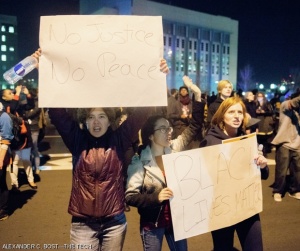
Sisterhood as Activity, Emotion, and Thought
Active: We can give to one another our time and space to vent our anger at the violence done to women. We can brainstorm creative witchy things to do to point out and undermine patriarchal violence. We can encourage our creativity, pooling our resources and skills. We can remember the words of one another, weaving our sister-witches' word with credit and pride in what we can make together.
Listening to women, our concerns and hopes, gives me inspiration and in turn I return to the work of unwrapping and weaving. When we sing and speak together, not only are we louder but we are clearer. We find the reverberations of truth. Really, it’s a blessing to spin and weave with others. (Aria Plus Cat)
Emotional: We can trust one another's intuitions, providing a framework of evidence and emotional sensitivity - to recognize violence done to us and to heal ourselves; to protect ourselves and prevent future harm. We can simply recognize one another. I'm amazed by the strength both gained and given in being seen. We can validate our pain. We can anoint one another to heal, remembering our doula and midwife mothers. We can teach one another how to bear pain, not as vessels but as discharging rods. We can teach sisters how to strike out to protect ourselves. Sisters can reverberate in our fury and get in touch with our repressed passion. We can love and praise the unique beauty of our sisters, freckles and fury.
[caption id="" align="alignright" width="174"]
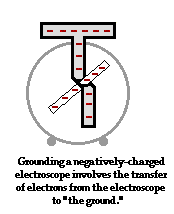
Grounded: We can ground one another, allowing us to discharge negative attacks out of our network[/caption]
Intellectual: Again, in seeing and remembering, we can refer to our fellow sister's work. We can criticize one another from a place of love and respect. We can catch one another when our fingers falter. We can spar with one another, teaching each other the tricks that once were used against us and disarming a strength against us. Our sister secrets can be our shared truths.
Again, feminist sisterhood exists outside of dominance/submission masochistic/sadist hierarchical relationships. Older sisters are not lords or masters over younger sisters; younger sisters are not swaddled in weakness. Sisters do not have to submit to hazing or pain to find the love of their kin. Sisterhood is not a competition for attention.
Our revolutionary task is to destroy phallic identity in men and masochistic nonidentity in women--that is, to destroy the polar realities of men and women (Our Blood by Dworkin via no status quo)
We must be part of that "subversive or sympathetic sisterhood" that Richele was denied (intercourse, possession, Dworkin: 93).
Re-Sister
Sisterhood become re-sisterhood.
I believe that ridding ourselves of our own deeply entrenched masochism, which takes so many tortured forms, is the first priority; it is the first deadly blow that we can strike against systematized male dominance. In effect, when we succeed in excising masochism from our own personalities and constitutions, we will be cutting the male life line to power over and against us, to male worth in contradistinction to female degradation, to male identity posited on brutally enforced female negativity--we will be cutting the male life line to manhood itself. (Our Blood by Dworking via no status quo)
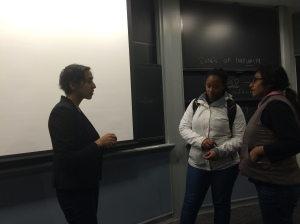
To understand that no one has or can have your power, that it remains in you no matter how forbidden you feel it to be, means defying the patriarchal taboo and that's very hard. It means claiming one's own limited but real power and abandoning one's inflated notion of other women's power. It means engaging in a direct public confrontation with the patriarchy as embodied in men and men's institutions, not concentrating on its symbolic presence in other members of the women's community. (Power and Helplessness via Feminist Reprise)
Sisterhood is about moving beyond a sense of power over others. Resisters must have power over themselves, power to relate to and encourage others, power to control and engage with themselves, power to use for love.Sisterhood encourages other women to do their best, not at our expense but at our interest.
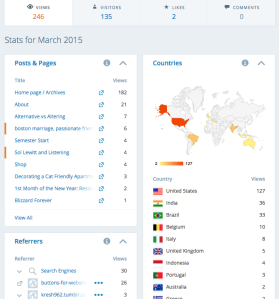



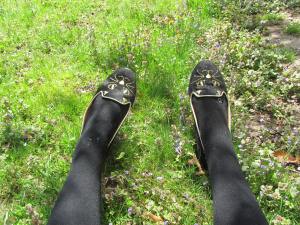



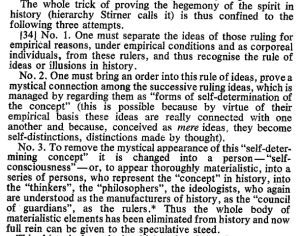



 Grounded: We can ground one another, allowing us to discharge negative attacks out of our network[/caption]
Grounded: We can ground one another, allowing us to discharge negative attacks out of our network[/caption]
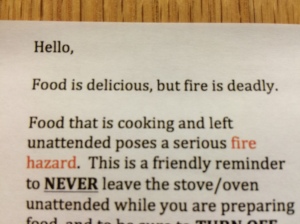
 Cinderella's sisters from the movie production of Into the Woods[/caption]
Cinderella's sisters from the movie production of Into the Woods[/caption]